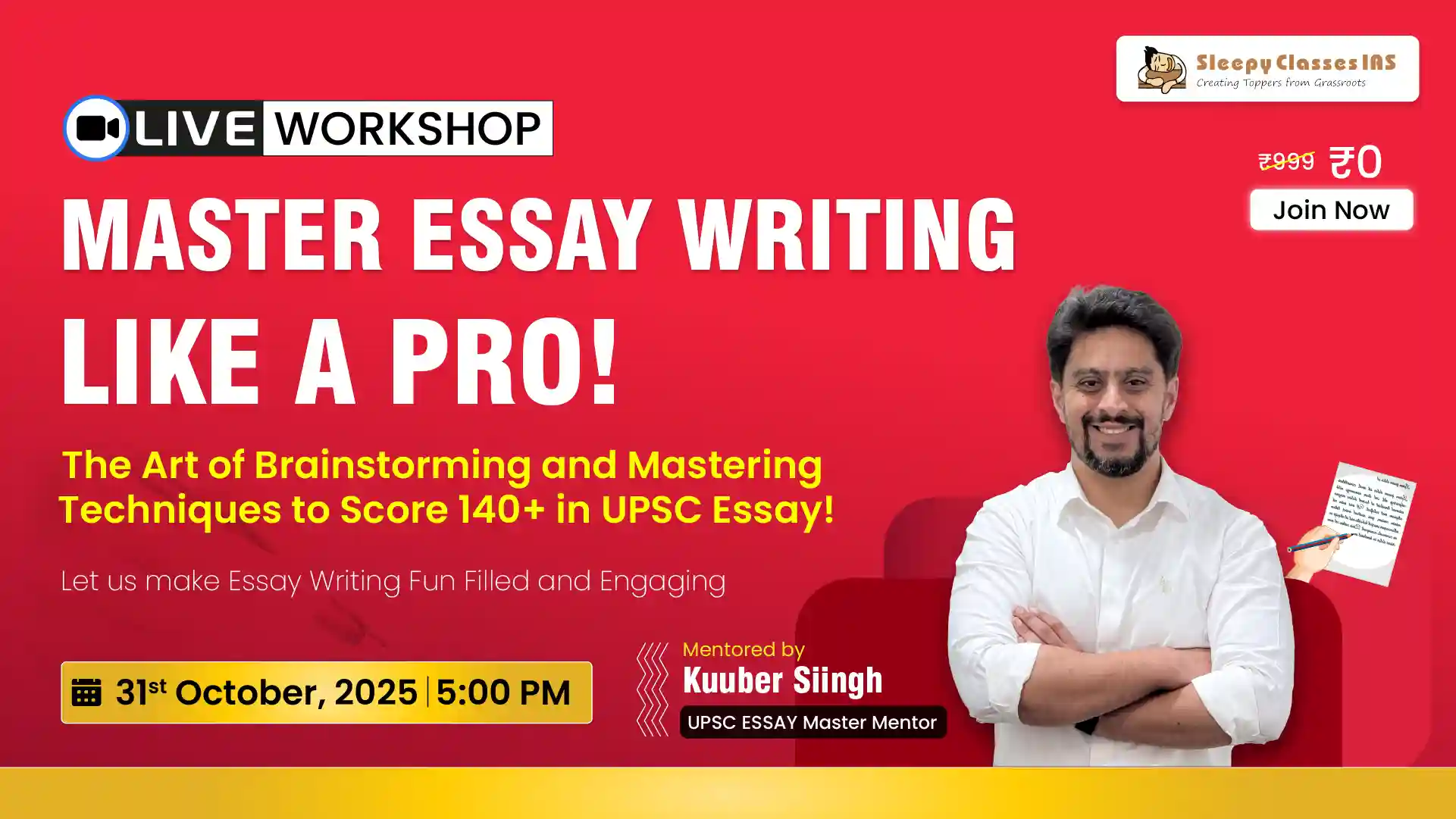Strategies to Ace UPSC Prelims in Limited Time
Preparing for the UPSC Prelims in limited time can be daunting, but with smart planning and strategic study techniques, it’s possible to maximize efficiency and increase your chances of success. In this blog, we’ll cover actionable strategies for tackling UPSC Prelims in limited time, focusing on prioritizing essential topics, using effective study methods, and leveraging resources like Sleepy Classes to guide your preparation.
1. Prioritize High-Yield Topics
When time is short, focus on high-yield topics that have a strong presence in past UPSC Prelims. Analyze the UPSC Prelims syllabus and break it down into sections with a history of frequent questions. Here are some key areas:
- Polity: Focus on the Indian Constitution, governance, and fundamental rights. Resources like Laxmikanth’s Indian Polity and Sleepy Classes Polity videos (check out Sleepy Classes) offer clear, concise explanations of these topics.
- History and Culture: Prioritize modern history, specifically from the 1857 revolt to India’s independence. For ancient and medieval history, focus on art, culture, and architecture.
- Geography and Environment: Study physical geography concepts like monsoons, rivers, and forests. Also, cover biodiversity, environmental treaties, and conservation efforts.
- Economics: Focus on basic economic principles, fiscal policy, banking, and budget highlights. The Economic Survey and Budget Summary from the Ministry of Finance (see Economic Survey PDFs) provide essential data.
Selecting these key topics saves time and helps cover the majority of UPSC Prelims content effectively.
2. Rely on NCERTs for Conceptual Clarity
NCERT textbooks, especially for subjects like history, geography, and science, provide fundamental clarity in easy-to-understand language. They’re essential for building your base in UPSC Prelims in limited time.
- History: Use NCERTs from classes 6-12 for a chronological understanding of Indian history.
- Geography: Class 11 and 12 geography NCERTs are sufficient for concepts on physical geography and Indian geography.
For a streamlined approach, refer to Sleepy Classes NCERT Batch, which simplifies NCERT content to ensure coverage of essential concepts. The Sleepy Classes NCERT resources are helpful for quick revisions.
3. Make Current Affairs Digestible
Current affairs are crucial for the UPSC Prelims in limited time strategy. Instead of going through months of newspapers, rely on consolidated current affairs sources.
- Monthly Magazines: Magazines like Yojana and Kurukshetra provide curated content on government schemes, policies, and socio-economic issues. For a current affairs overview, PIB is also a reliable source.
- Daily Summaries: Websites like Insights on India or Sleepy Classes offer daily summaries of current affairs. This saves time and ensures you’re covering relevant news without getting overwhelmed.
Sleepy Classes also provides a Current Affairs Course that integrates news with static topics to provide a rounded understanding of current affairs essential for Prelims.
4. Use Mock Tests Strategically
Mock tests are vital for revising and identifying weak areas. For UPSC Prelims in limited time, take at least 2-3 mock tests per week to build your stamina and get accustomed to time constraints.
- Analyze Results: After each test, review your mistakes. Identify weak areas and prioritize revisiting those topics.
- Focus on Elimination Techniques: UPSC Prelims often include tricky options. Practicing elimination techniques can be incredibly useful. Sleepy Classes’ mock tests come with explanations that highlight why certain options can be eliminated based on logic.
Sleepy Classes offers a UPSC Prelims Test Series specifically designed to mimic the real exam, with in-depth analysis and explanations for each question, which is useful for refining your test-taking strategy.
5. Create a Revision Plan
Revising effectively is essential to retaining information. For UPSC Prelims in limited time, focus on creating a concise revision plan that allows you to cover essential topics and high-yield areas multiple times.
- Make Short Notes: For each topic, create brief, high-level notes that you can quickly review in the days leading up to the exam.
- Flashcards for Key Facts: Use flashcards for quick revision, especially for data-heavy sections like economics or dates in history.
- Set Daily Goals: Divide topics by days, and focus on achieving daily targets. This keeps your progress structured and prevents last-minute cramming.
Resources like Sleepy Classes’ Rapid Revision Series provide a condensed version of important topics, making last-minute revision manageable. Access the rapid revision videos on Sleepy Classes.
6. Practice Elimination Techniques
For UPSC Prelims in limited time, learning the art of elimination is as important as knowing the answer. Often, you can narrow down to the correct answer by eliminating improbable options.
- Logical Guessing: If two options are similar, one of them is likely correct. If two options are contradictory, one might be correct, while the other could be a trap.
- Elimination Practice in Mock Tests: Practice elimination techniques in mock tests to refine your approach. Mock tests from Sleepy Classes include explanations that guide you on how to logically eliminate wrong answers.
7. Stay Focused and Minimize Distractions
With limited time, staying focused is critical. Avoid multitasking and minimize social media use to stay on track.
- Study Timer Apps: Use apps like Forest or Focus@Will to set dedicated study times and take regular breaks.
- Study Groups: Studying in groups can also provide motivation. Sleepy Classes has a dedicated Telegram Group for UPSC aspirants where you can connect with like-minded students and discuss strategies.
Sample 2-Month Strategy for UPSC Prelims in Limited Time
Here’s a quick 2-month plan if you’re short on time:
Week 1-2: Focus on NCERTs for foundational clarity. Cover Indian Polity and History in detail, while revisiting key economic concepts.
Week 3-4: Prioritize environment, science, and technology. Start current affairs consolidation from Sleepy Classes and practice elimination techniques.
Week 5-6: Revise all topics, start mock tests, and analyze your weak areas.
Week 7-8: Focus solely on revision and mock tests. Go over your short notes and complete rapid revision sessions on Sleepy Classes.
Conclusion
Preparing for UPSC Prelims in limited time requires strategic focus, high-yield material, and practice. By focusing on priority topics, using mock tests effectively, and engaging with revision resources like Sleepy Classes, you can maximize your preparation in a time crunch. Use resources like NCERTs, current affairs compilations, and rapid revision courses to stay updated and confident in your approach. Embrace these strategies, and you’ll be well-equipped to tackle UPSC Prelims with confidence, even with limited time!





